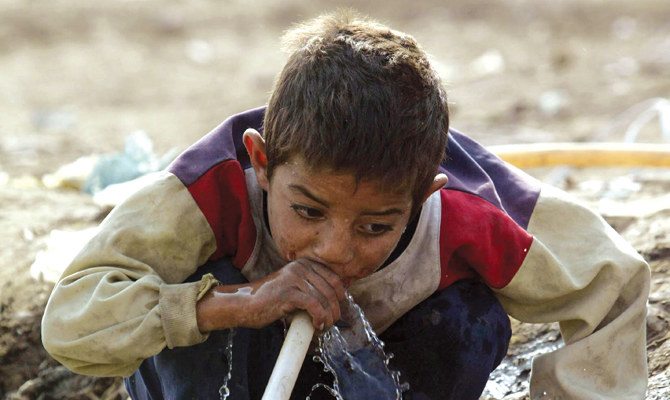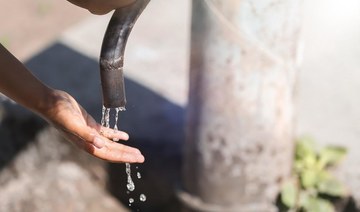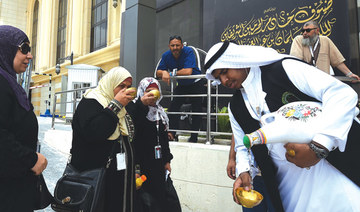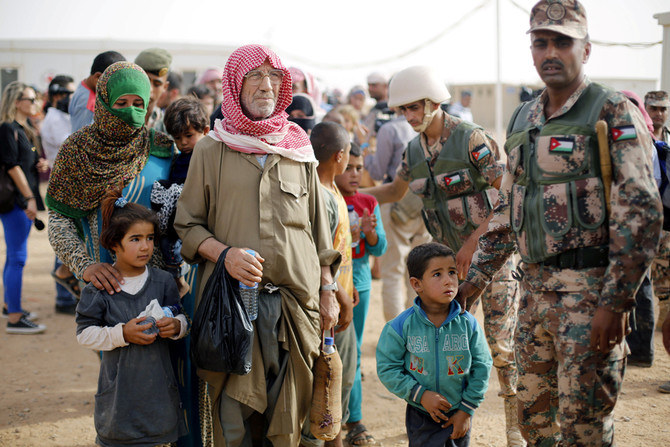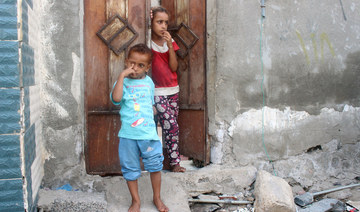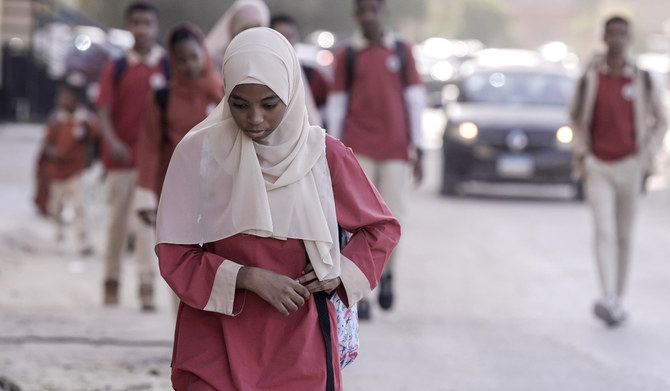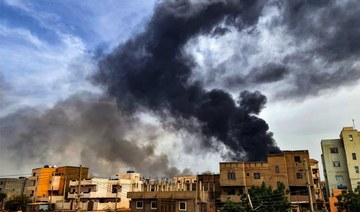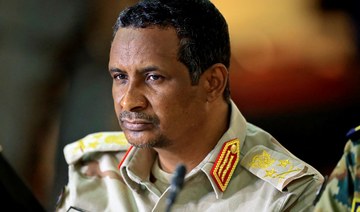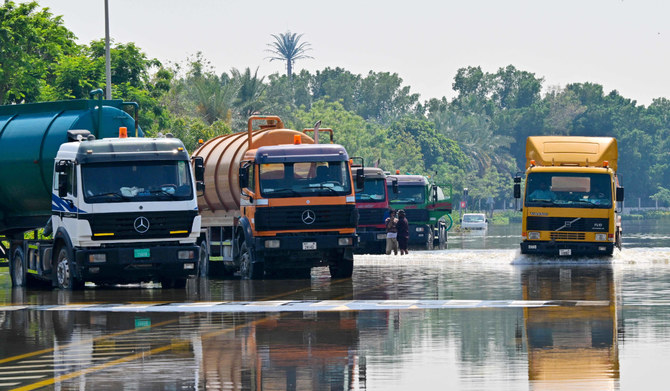DUBAI: It was dubbed the “Venice of the Middle East” for its network of waterways that invited comparisons to the Italian city. But Basra is today emblematic of almost everything that is wrong with Iraq. Few maladies, though, reflect the depth of the rot in the country’s system like the port city’s acute water crisis.
Situated where the Euphrates and Tigris rivers merge near the Gulf at Iraq’s southern tip, Basra is home to 2.5 million people but lacks an effective water treatment system. Be it the Shatt Al-Arab River or the canals, Basra’s water resources have fallen victim to “decades of pollution, mismanagement and corruption,” according to a recent report by the Human Rights Watch (HRW).
The study was prompted by a creeping sense over the past two decades that the concept of human rights is not relevant to the average citizen of fragile states such as Iraq. Belkis Wille, a senior Iraq researcher in the HRW’s Middle East and North Africa division, said a desire to counter that impression inspired her to conduct the investigation.
“I wanted to emphasize to Iraqis that the issues they care about on a daily basis are human rights issues, so I was waiting to come across the right opportunity to drive home that point,” Wille said.
In Basra’s water crisis, which has blighted large expanses of southern Iraq, she found a direct connection between human rights violations and corruption. “In Iraq, no matter what their religion or ethnic identity, everyone agrees that corruption is one of the biggest problems facing the country, with deeply damaging consequences,” she said. “So I wanted to look at it from a rights perspective.”
In the 1960s, Basra had an advanced sanitary infrastructure, but for almost 30 years, governments have failed to provide safe, drinkable water to much of the population. Tempers flared in the summer of last year when water-borne disease outbreaks led to the hospitalization of tens of thousands of residents. Protests erupted in the city once against this summer as anger over deteriorating services and economic hardship boiled over.
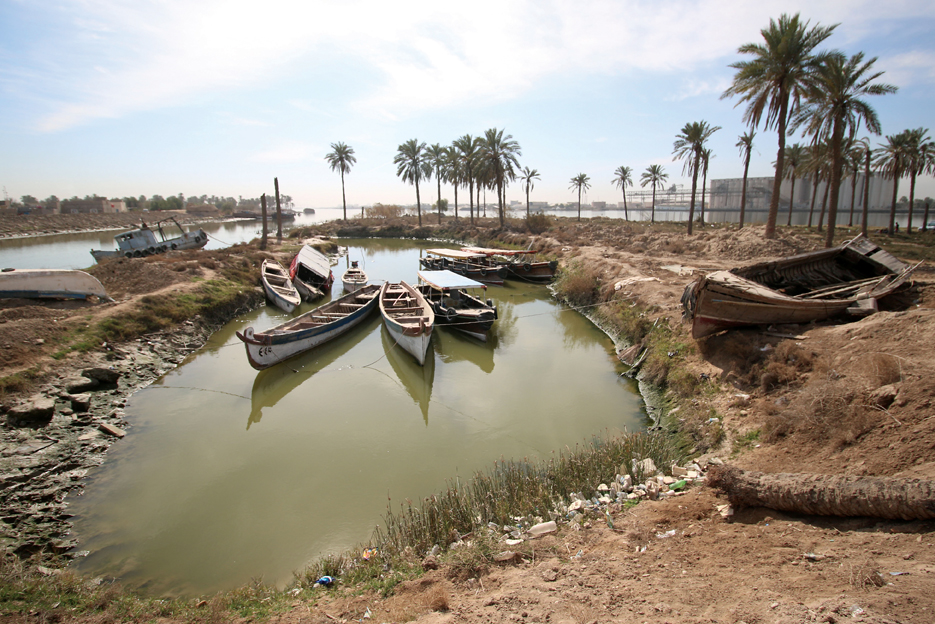
A decrease in the amount of water flowing to the Shatt Al-Arab and its canals resulted in higher levels of sewage, industrial pollution and water salinity. (AFP)
Wille says what lies at the root of Basra’s chronic water crisis is not one but a number of different factors: Reduced water flow, seawater intrusion, pollution and mismanagement of waterways.
“It rained and snowed a lot over Christmas and early this January, so that means the water situation across Iraq this year is theoretically better, with more water flowing through the waterways.
“This means Iraq should not have as much seawater intrusion as before, so water pollution should therefore also be reduced,” she said.
The reality of the situation is another matter.
“We know in terms of global trends of low rainfall and increasing temperatures, this means that when there is another year of low rainfall, then the crisis will be worse,” Wille said.
Until the early 1980s, Basra was a magnet for Middle Eastern tourists, but these days an estimated 338,400 residents of the city live in informal housing spread throughout the oil-rich governorate. These homes are excluded from the formal water and sanitation networks, making them water-insecure.
According to the UN, almost 4,000 individuals in the Basra governorate had to leave their homes in August 2018. This was most likely due to poor access to adequate supplies of potable water, although a causal link between the two has not been proven.
What is known is that last year, there was a decrease in the amount of water flowing to the Shatt Al-Arab and its canals from rivers upstream, which resulted in higher levels of sewage, agricultural, industrial pollution and salinity in the water.
Prior to 2018, Basra had experienced water-related health emergencies in 2009 and 2015, but, according to the HRW report, local and federal authorities failed to properly address the underlying causes or establish procedures to protect residents before a new crisis arose. For example, during the 2018 crisis, authorities did not adequately alert residents to the dangers posed by poor water quality.
Iraqi ministries did cooperate with Wille’s investigation, but the report also said that the results of tests of water samples from the Shatt Al-Arab and treatment plants after the protests of 2018 summer were not made public. HRW was told by all federal and local authorities that the results and reports were confidential.
With the help of satellite imagery, Wille’s research found that two major spills had occurred in 2018 that leaked oil into the Shatt Al-Arab in central Basra. 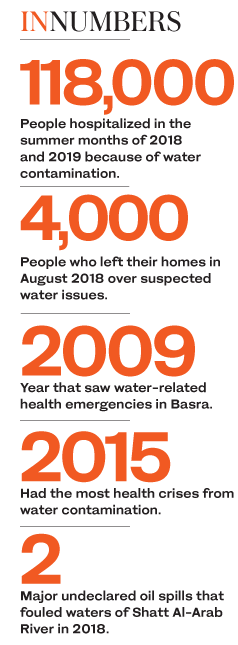
Again, the government did not apprise the public of the oil spills, even though many residents had complained about a gasoline smell in their tap water and some were even able to set the water aflame.
In the process, the HRW report was able to identify a glaring drawback of Iraq’s regulatory regime: The absence of a public health advisory to inform residents when drinking water is contaminated, how to reduce harm and protocols for government officials to respond to advisories and lift them.
“Basra residents now apparently risk illness from just using the water to wash their food or themselves, and the authorities have not enforced standards even for water for these purposes,” Wille said.
“The lack of sufficient freshwater has also cost Basra its title as the country’s biggest producer of dates. Farmers have been irrigating their farmland with the saline water from the Shatt Al-Arab for many years now, killing off most of their crops and livestock as a result.”
Her next step will be to meet officials in Baghdad in September and push for the adoption of the three pages of recommendations from the HRW report. Later in the month, she intends to hold meetings with officials of European countries that may want to contribute to the amelioration of Iraq’s water situation.
“Our primary recommendation is for the establishment of an inter-ministerial body that includes local authorities,” Wille said, adding that the current arrangement “allows the federal government (in Baghdad) to blame the authorities in Basra for everything.” Although she is not sure about the political will to implement the primary recommendation, Wille is not giving up hope. “The creation of such a body would be the first step towards implementing the report’s recommendations,” she said. “At the moment, even if the government adopts them, it does not have the buy-in to implement them.”
After years of occupation, sectarian strife, misrule and underinvestment, few expect Basra to regain its fabled beauty any time soon. But some tentative steps towards a resolution of the ongoing water crisis do not seem like an unreasonable demand.



